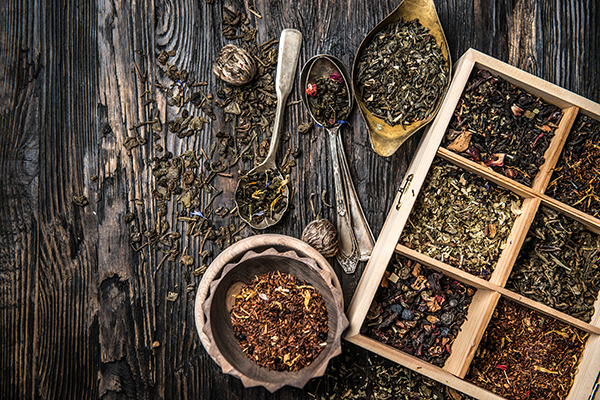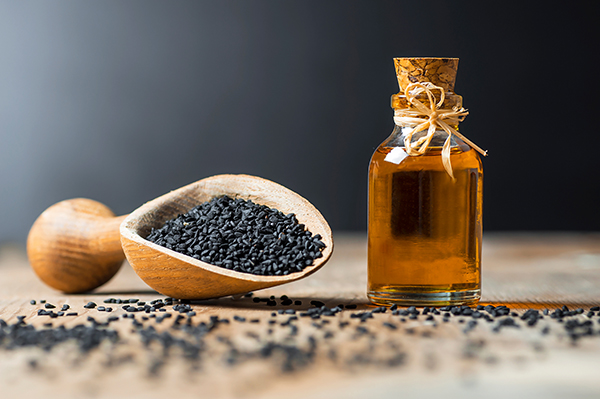Superfood recipes: Boost your fiber intake with this apple pie smoothie
12/12/2022 / By Zoey Sky

Juicing is big among health enthusiasts, but others prefer smoothies.
After all, smoothies are more filling. And unlike juicing, making a healthy smoothie at home means you get to enjoy the benefits of nutritious ingredients that are full of dietary fiber, like apples.
When you make your own smoothies, you are also free to add healthful herbs and spices, as well as other ingredients that can boost the nutritional content of your beverage.
If you’re a fan of delicious and healthy smoothies, try making an apple pie smoothie.
Keep your uric acid in check with nutritious apple pie smoothie
An apple pie smoothie is loaded with dietary fiber from the pulp of apples and their bioflavonoid-rich skin.
Fiber and bioflavonoids can help keep your uric acid in check. Uric acid is a natural waste product generated by the digestion of foods that contain purines, such as beer, organ meats, red meat and sardines. Your body also forms and breaks down purine.
Normally, your body filters out uric acid through the kidneys and via urination. However, if you consume too much purine or if your body is unable to eliminate this by-product fast enough, uric acid can build up in your blood.
A normal uric acid level is under 6.8 mg/dL; blood levels above that can cause hyperuricemia, a condition that can lead to gout. Gout causes painful joints, courtesy of accumulated urate crystals. Hyperuricemia can also make your blood and urine too acidic.
This healthy apple pie smoothie boasts anti-inflammatory and glucose-controlling benefits, thanks to spices like cinnamon, ginger and nutmeg. It is also a great source of “good” fat from Greek yogurt, raw almond butter and almond milk.
Ingredients for 2 servings:
- 1 Unpeeled McIntosh or other red apples, seeded and cubed
- 1 Cup full-fat Greek-style yogurt, plain and unsweetened
- 1 Cup unsweetened almond milk
- 1 Cup ice
- 2 Tablespoons unsalted raw almond butter
- 1 Teaspoon broccoli seeds
- 1 Teaspoon granulated allulose or monk fruit, or to taste
- 1 Teaspoon ground cinnamon
- 1/2 Teaspoon vanilla extract
- A pinch of ground ginger
- A pinch of ground nutmeg
Preparation:
- Combine the apple, almond milk, yogurt, almond butter, cinnamon, vanilla, nutmeg, ginger, allulose broccoli seeds and ice in the blender. Process until the liquid is smooth and creamy.
Apple peanut butter smoothie
This recipe is based on the classic snack pairing of apples and peanut butter.
Ingredients for 1 serving:
- 1 Cup almond milk, unsweetened
- 1 Small apple, chopped with the peel on
- 2 Tablespoons natural peanut butter
- 2 Teaspoons honey (Optional)
- 1 Teaspoon vanilla extract
- 1/4 Teaspoon ground cinnamon
- 4-6 ice cubes
Preparation:
- Combine the almond milk, apple, peanut butter, honey, vanilla, cinnamon and ice cubes in a blender. Process until smooth.
Health benefits of eating apples
Did you know that there are 7,000 different cultivars of apples? They are also the most widely consumed fruit worldwide. (Related: Researchers explore the properties of Apple of Sodom (Dead Sea Apple) that make it a staple in traditional Kenyan medicine.)
Sweet, juicy apples are often used in recipes for desserts like cookies and pies. Apples are also used to make jams, muffins, oatmeal, salads or smoothies. While apples can be enjoyed on their own, you can eat apples wedged and with a bit of nut butter.
Apples have several scientifically-proven health benefits. The current Dietary Guidelines for Americans recommend eating two cups of fruit daily for a 2,000-calorie diet, emphasizing whole fruits such as apples.
One medium seven-ounce (200-grams) apple contains these nutrients:
- Calories – 104
- Carbs – 28 grams
- Fiber – 5 grams
- Vitamin C – 10 percent of the Daily Value (DV)
- Copper – 6 percent of the DV
- Potassium – 5 percent of the DV
- Vitamin K – 4 percent of the DV
The same serving also provides two to five percent of the DV for vitamins B1, B6 and E.
Vitamin B1, or thiamine, is crucial for normal growth and development. You need vitamin B6 for protein metabolism, while vitamin E acts as a fat-soluble antioxidant.
Apples are also full of polyphenols, an important group of antioxidants. These compounds help prevent free radical damage that is often linked to the development of chronic conditions such as cancer and heart disease.
Experts believe antioxidants like polyphenols are behind the health benefits of apples. To get the most out of apples, eat them with their skin on. Apple peel contains half of the fiber and most of the polyphenols in apples.
Here are some of the benefits of eating apples:
Helps protect your brain
The quercetin in apples may protect your brain from damage caused by oxidative stress.
In one animal study, researchers reported that quercetin helped protect the brain and nerves of rats from oxidative damage. The compound also helped prevent injuries that can result in degenerative brain diseases like Alzheimer’s disease or dementia.
Additionally, high intakes of flavonoids like quercetin has been linked to a lower risk of stroke. According to one study, for every 1/5 cup (25 grams) of apple slices you consume per day, your risk of stroke can decrease by as much as nine percent.
Good for your heart
Research suggests that apples help lower the risk of heart disease. Experts attribute this to their high soluble fiber content, which helps lower blood cholesterol levels.
Meanwhile, flavonoids like epicatechin in apples help lower blood pressure and reduce LDL (low-density lipoprotein) cholesterol oxidation. They also help prevent atherosclerosis, or the harmful buildup of plaque in the arteries.
Helps improve gut health
Apples contain pectin, a type of fiber that functions as a prebiotic. Prebiotics feed your gut microbiota, or the “good” bacteria in your gut.
The state of your gut microbiota is crucial to your overall health because a healthy gut can help strengthen your defenses against diseases.
Since your body can’t digest dietary fiber, pectin from apples reaches your colon intact and promotes the growth of good bacteria. Pectin helps improve the ratio of Bacteriodetes to Firmicutes. These are the two main types of bacteria in your gut.
According to research, apples can beneficially alter your gut microbiota and offer protective benefits against chronic diseases like cancer, heart disease, obesity and Type 2 diabetes.
Helps support weight loss goals
Apples are high in fiber and water, which makes them a filling snack.
Eating healthy foods like apples can make you feel full for longer, which can help you achieve your weight loss goals. When you feel full, you can avoid unhealthy snacking between meals. This can then help reduce your energy intake.
One study showed that eating whole apples increased feelings of fullness for up to four hours compared to consuming an equal amount of apple puree or juice. Researchers found that this was possible because apples can reduce gastric emptying, or the rate at which the stomach empties its contents.
According to studies, eating apples can also help reduce your body mass index (BMI), a weight-related risk factor for heart disease. Data also suggest that apple polyphenols may have anti-obesity effects.
Maintain a healthy weight by following a balanced diet and eating nutritious apples.
Watch the video below to learn how to make healthy apple cider gummies.
This video is from the Health with benefits channel on Brighteon.com.
More related stories:
Maintain eye and bone health with vitamins A and D (recipe included).
Whip up this gut-healthy turmeric ginger lemonade to naturally relieve inflammation.
Start your day right with these 6 anti-inflammatory breakfast recipes.
Sources include:
Submit a correction >>
Tagged Under:
anti-inflammatory, apples, food cures, food is medicine, food science, functional food, natural cures, natural health, natural ingredients, natural medicine, nutrients, nutrition, organics, prevention, recipes, remedies, smoothies
This article may contain statements that reflect the opinion of the author
RECENT NEWS & ARTICLES
Natural.News is a fact-based public education website published by Natural News Features, LLC.
All content copyright © 2018 by Natural News Features, LLC.
Contact Us with Tips or Corrections
All trademarks, registered trademarks and servicemarks mentioned on this site are the property of their respective owners.





















